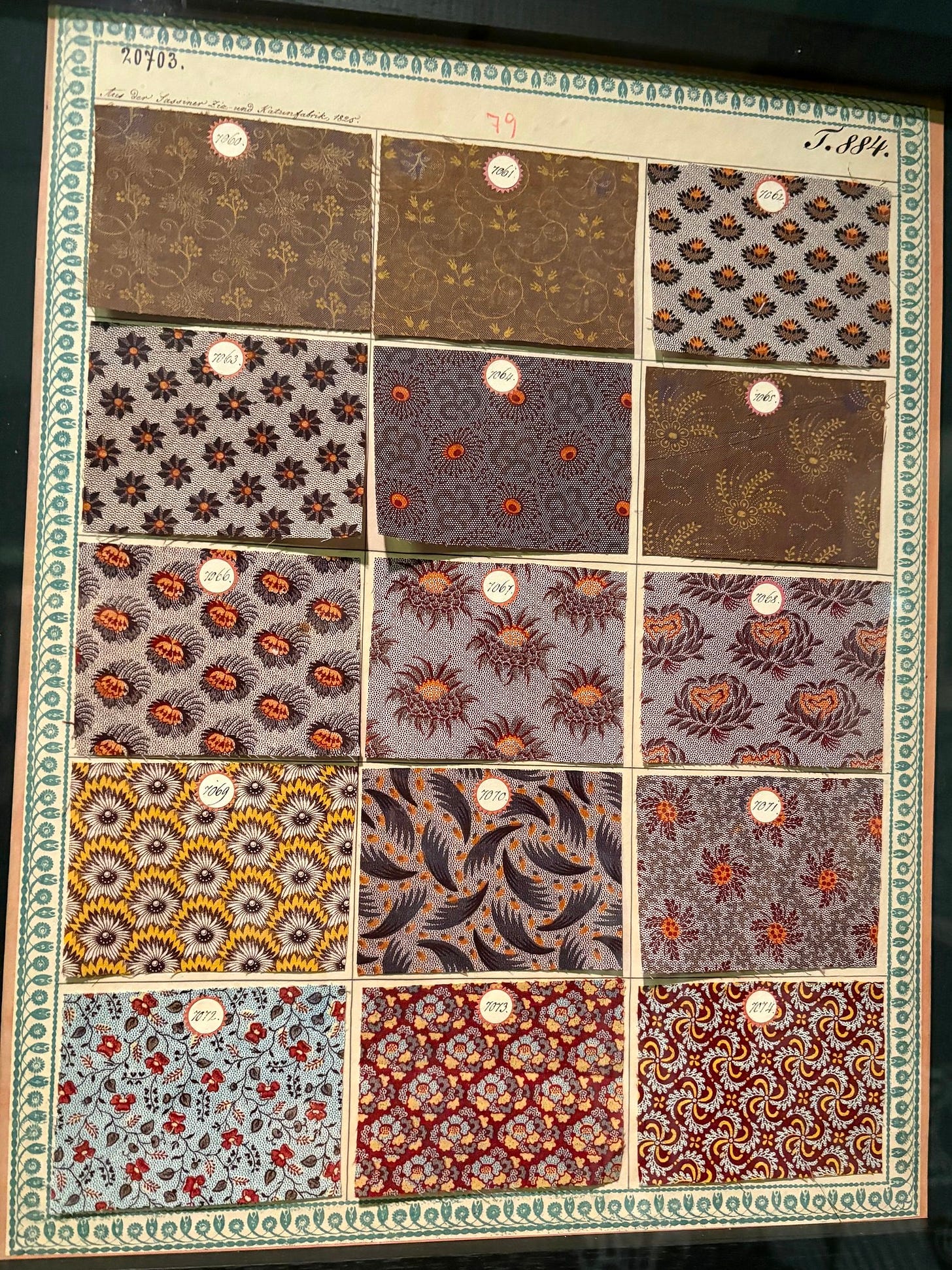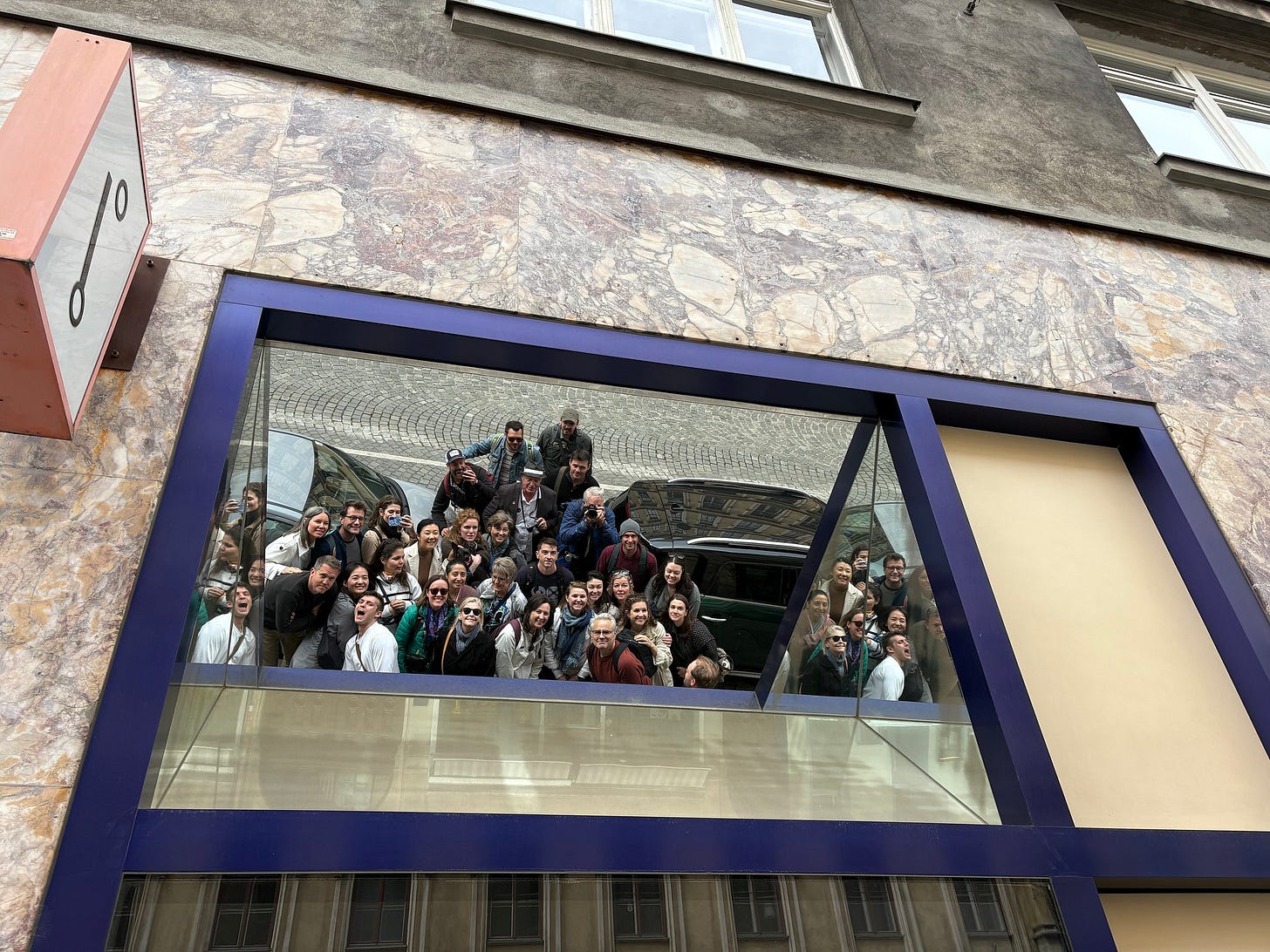No idea comes from nothing
Viennese visions, and being a woman in an art museum
The impossible question, after time away: How was your trip?
Answering is like trying to recount a long dream. It’s too elusive; it can’t be reduced to a simple plot line. I couldn’t transmit it if I tried! (This is partially why I’m so prickly about travel talk.)
I’ve been saying: Vienna was transcendent. It was. I can only express it in fragments.
You will get one to two hundred lessons.
Julien Green: “You don’t know a city until you’ve wasted time in it.”
The rudeness and carelessness of how Americans dress, how you can pick us out in a crowd in an instant, how it feels often like a lack of respect for others and a prioritization of the self and its comfort
Drawing as a kind of dreaming
To absorb Vienna, not to consume it
This is not school, but it is your life.
“I don’t want to be alone in my studio all the time. I need to sell, and so I have to go out and exchange with people to get new ideas and to keep creating.” (Simone Springer, Rosa Mosa)
The ethereal purity of a Lobmeyr glass, scarcely believable as a real object when your fingers close around it
Margarete Schütte-Lihotzky’s Frankfurter kitchen and the home economy: oikonomia. Mothers as engineers
Sitting under the network of grape vines, eating slowly and drinking much cold wine, and having conversations with your European sister that you would never get to have at home on holiday
The wind blowing through the open door at Café Prückel, continually making the crystals of the Lobmeyr chandelier sing
The psychotherapeutic atmosphere of the Viennese café (Deborah Levy!); it’s Freud and it’s all here
Most of Europe may be more civilized than most of the United States, but people are the same everywhere. I grow tired of comparison, of our need for generalizations. We are not that different.
Nothing is ever lost. The earth changes mass only slightly every year.
You have to love people to design.
Rooms can make you sick. Space plays you like an instrument.
The artist, holding up the underside of a ceramic tile to us and saying, “See, it is a painting of the universe.”
The espresso cup should drag me into another reality.
How curious the contrast between the great beauty of public spaces and the great ugliness of (many) private spaces (the IKEA-fication of European flats)
The dark jazzy vibes in the bar, after the Wagner opera in which we were violently shushed, sitting close to each other, martinis and whiskey sours, futile arguments, the fish tank with no fish in it (you leave when you start to see fish)
To walk and walk and walk, for hours every day, to not want to sit down, but when you do, that rush of delight in settling: Vienna welcomes this
Tomorrow is a year away.
The woman in the art museum
We passed through an exhibition of the final works of Egon Schiele, who is not even close to Austria’s most effed-up native son.
You don’t have to read his letters and diaries and statements to know that he hated women—and hated them in that sadly typical admixture of misogyny, which can often be equal parts contempt and worship. His loathing for women was on full display in his work.
Walking through these galleries, seeing sketch after sketch of naked women, I felt how strange it was to be a woman, with a body, looking at all of these women’s bodies, next to men and through the eyes of a man, preserved for posterity in this cold museum.
I watched a young female tourist linger briefly on a Schiele nude and then move away quickly when an old Austrian man approached. I too felt like turning away.
It was not my body on display, but it might as well have been.
To be held up as this aesthetic ideal, to be despised and worshiped, did not (does not) feel like an honor. In that gallery, it felt like exposure. It felt like succumbing to centuries of men telling women who they are, men showing women’s bodies the way they wanted to see them, men pointing to where women are allowed to be.
My feminist back doesn’t arch much these days, but I pay attention when it does.
I’m not sure what to make of this feeling, or where it is supposed to go, but I felt hungry for fresh air and women’s voices as we walked out of the Leopold and into the bright square.
Currently reading
Lion, Sonya Walger
Heroines, Kate Zambreno







